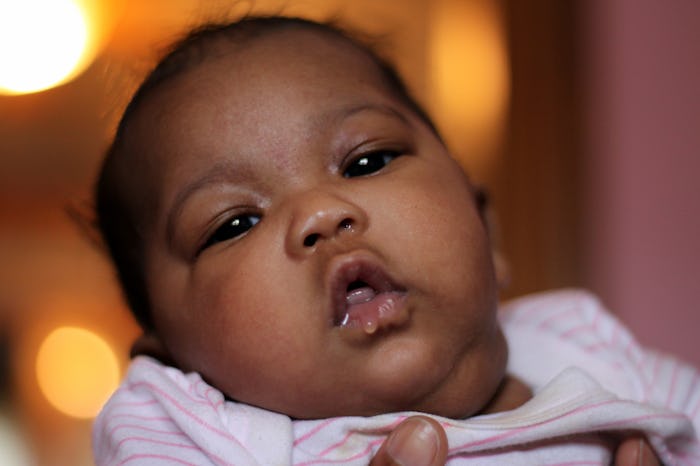Life
Why Do Babies Drool? It’s Not Because They Want To Ruin Your Clothes
Your baby looks like a perfect angel most of the time, until she starts drooling more than a Great Dane. Where does it all come from, and how are you supposed to deal with it? Those cloth bibs are cute, but some days you feel like a rain poncho would be more effective. Why does your baby drool so much, and what can you do to minimize the damage to your baby’s skin — not to mention your t-shirt and upholstery?
Fortunately, drool is a just a natural, messy part of your infant’s normal development process. For a few months, your baby produces more saliva than their little mouths can handle. It’s usually nothing to be worried about, and your baby will eventually grow out of the drooling-buckets phase. But for those moms who want a little extra info, here’s a quick rundown of the developmental factors that transform your infant into a tiny spigot, as well as some tips to help you deal with the drool until your baby learns to keep the spit to herself. In the meantime, you may want to invest in a waterproof case for your phone and maintain a serious sense of humor during the drool-filled days.
Age and Salivary Gland Development
Although your baby’s had salivary glands since utero, you may not notice the heavy duty drool until she’s around two months old. This just means that her salivary glands are starting to works and does not necessarily indicate teething, according to Benioff Children’s Hospital. Because your baby hasn’t yet mastered the art of swallowing saliva and she doesn’t have teeth to help hold it in her mouth, it just spills out on her bib, the couch, and, of course, you.
Teething
A teething baby is a drooling baby. Mayo Clinic notes that teething typically starts around six month, and excessive drooling is just part of the process. It will continue until baby’s swallowing capacity catches up around seven or eight months. So you’ll probably have to deal with drool for a few solid months in the meantime.
Cold or Allergies
In addition to normal developmental processes, the New York Times notes that babies may have excessive drool as a reaction to cold or allergies. If your baby is showing other signs of a cold, such as a runny nose, low-grade fever, or coughing, it may be a good idea to contact your physician.
